U.S. Secretary of State Hillary Clinton voiced hope Friday the United States would act beyond its pledges on curbing emissions as she visited Pacific islands threatened by climate change.
Clinton, the first U.S. secretary of state to take part in the annual Pacific Islands Forum, pledged $25 million in new assistance to help the low-lying nations of the region plan and adapt to expected rising water levels.
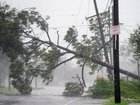 Full Story
Full Story
Neil Armstrong was a humble hero who saw himself as a team player and never capitalized on his celebrity as the first man to walk on the moon, mourners said Friday outside a private service attended by fellow space pioneers, including his two crewmates on the historic Apollo 11 mission.
Hundreds of people attended a closed service for Armstrong Friday at a private club in suburban Cincinnati. A national memorial service has been scheduled for Sept. 12 in Washington, although no other details have been released on the service or burial plans for Armstrong. He died Saturday at age 82.
 Full Story
Full Story
Workers have discovered hundreds of bones belonging to Ice Age animals, including mammoths, mastodons and glyptodonts, while digging to build a wastewater treatment plant north of Mexico City.
The bones could be between 10,000 and 12,000 years old and may include a human tooth from the late Pleistocene period, Mexico's National Institute of Anthropology and History said Thursday.
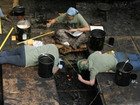 Full Story
Full Story
A controversial idea to brake global warming, first floated by the father of the hydrogen bomb, is affordable and technically feasible, but its environmental impact remains unknown, a trio of U.S. scientists say.
Sowing the stratosphere with particles to reflect the Sun and cool the planet is possible with current technology and would cost a fraction of the bill from climate change or reducing emissions by fossil fuels, they argue.
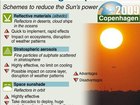 Full Story
Full Story
A scrap of bone found in a cave in Siberia has shed light on the genetic odyssey of an enigmatic group of humans called the Denisovans, scientists reported on Thursday.
The existence of the Denisovans only emerged in 2010, through a piece of finger bone and two molars unearthed at the Denisova Cave in southern Siberia's Altai Mountains and dated to around 80,000 years ago.
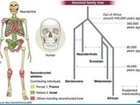 Full Story
Full Story
Twin satellites rocketed into orbit Thursday on a quest to explore Earth's treacherous radiation belts and protect the planet from solar outbursts.
NASA launched the science probes before dawn, sending them skyward aboard an unmanned rocket. Within 1½ hours, the two satellites were flying free. "We're all thrilled, just as excited as can be," said launch director Tim Dunn.
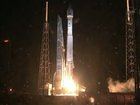 Full Story
Full Story
Australian scientists said Thursday they had successfully implanted a "world first" bionic eye prototype, describing it as a major breakthrough for the visually impaired.
Bionic Vision Australia (BVA), a government-funded science consortium, said it had surgically installed an "early prototype" robotic eye in a woman with hereditary sight loss caused by degenerative retinitis pigmentosa.
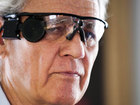 Full Story
Full Story
Scientists said on Wednesday they had identified a genetic variant that influences gait in horses, a potential boon for breeders but also for the quest to fix human spine injuries.
A patented DNA test will become available from Thursday, enabling horse buyers to spot an animal with a higher genetic chance of success at harness racing, they said.
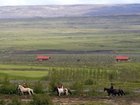 Full Story
Full Story
Astronomers using a powerful radio telescope in Chile said Wednesday that they had discovered sugar molecules, one of the building blocks of life, orbiting a young star similar to the Sun.
"This is the first time sugar been found in space around such a star," the European Southern Observatory (ESO), which is administering the project, said Wednesday.
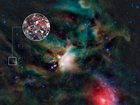 Full Story
Full Story
Polonium, the poison suspected of being used to kill Palestinian leader Yasser Arafat in 2004, is a highly radioactive material rarely found outside military and scientific circles.
Also known as Radium F, it is a rare but naturally occurring metalloid found in uranium ores that emits highly hazardous alpha, or positively charged, particles.
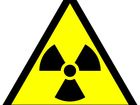 Full Story
Full Story



